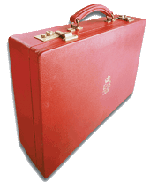Budgeting for Cigarettes and Alcohol

The details weren't announced in the budget speech, but were buried in the budget document. The alcohol increases weren't really mentioned either, they were also hidden away. Those changes don't take effect until October, and came about as a result of changes made in 2008.
The government is also steering towards forcing cigarette manufacturers to put their products in plain packaging, suggesting that this will somehow reduce the appeal of perhaps the most addictive substance in the world.
In my experience cigarette manufacturers, like many other companies, follow predictable patterns with their products. Every now and then, a new product will arrive which is packaged similarly to some other similar product, but is cheaper. The similar branding gives a clue to the customer that the new, cheaper brand X is similar to Brand Y, allowing customers to switch. Once hooked, the company slowly increases the price over the years that follow. Eventually the profit margin becomes so great that there is room in the market for a similarly-branded but cheaper competitor to steal their customers away, and the cycle begins again.
Quite often, the 'competition' is actually between different products made by the same company, as the tobacco industry is heavily monopolised - most products are made by either Imperial Tobacco or British American Tobacco, in much the same way that a lot of household cleaning products are made by either Unilever or Reckitt. Despite this, there is some competition.
Plain packaging may reduce this competition, by making it difficult for competing products to advertise themselves as being similar to a more expensive alternative. Customers may find themselves locked in to a particular brand, at which point the manufacturer may feel free to crank up their profit margins safe in the knowledge that their customers won't know where else to turn to get a better deal.
On the other hand, where there's a way to make money someone will look to exploit it, and it's probably a mistake to underestimate just how sly the marketing industry can be. Getting creative with cigarette box shapes and the choice of names are just the obvious ways they could work round the restriction. I can think of quite a few other ways too, but they're probably paid quite enough as it is and I'm not going to give them ideas for free if I can help it. Besides, they're probably alot cleverer than me and have their plans already in train.



